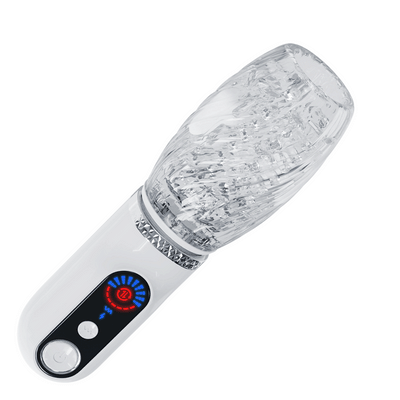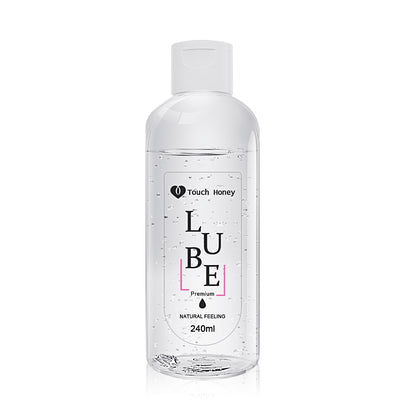What is masturbation?
Self-pleasure, as outlined by the Royal Academy of Spain, involves stimulating the genitals or erogenous zones for sexual enjoyment using the hands or other means. Essentially, it's the act of touching and caressing one's own genitals for sexual pleasure, often continuing until complete arousal and orgasm.
Considered one of the most straightforward and safe sexual behaviors, masturbation carries no risk of pregnancy or sexually transmitted diseases. It's a personal exploration of your body, helping you understand your preferences and desires. This self-awareness can enhance communication with your partner, allowing you to express your likes and dislikes during intimate moments.
Is it good to masturbate?
Masturbation is a natural and normal aspect of human sexuality, despite historical stigmas associated with it. Contrary to societal taboos, it is a common practice among individuals. Similar to engaging in sexual activities with a partner, masturbation offers various physical and mental health benefits. Beyond addressing the release of sexual tension in the absence of relationships, it contributes to a positive sense of humor and emotional independence. Embracing a healthy attitude towards masturbation can contribute to overall well-being.
- Masturbation stands out as a safer sexual practice compared to others, eliminating the risk of pregnancy or contracting sexually transmitted diseases (STDs).
- Engaging in self-pleasure aids in understanding one's sexual preferences. This self-awareness is valuable when deciding to engage in sexual activities with a partner. Moreover, open communication about sex and your body with a partner fosters a comfortable dialogue about protecting oneself from sexually transmitted infections (STIs) and unplanned pregnancies.
- Exploring your body and embracing sexual pleasure can be empowering, fostering a positive perception of your own body.
- Individuals experiencing more orgasms tend to have elevated levels of immunoglobulin A (IgA), a key component of the immune system's defense against colds and flu.
- Masturbation serves as a stress-reduction method, promoting relaxation. Additionally, for some individuals, it can contribute to better sleep quality.
- Orgasms trigger the release of endorphins, brain chemicals that induce a sense of well-being. They also serve as natural pain relievers, helping alleviate menstrual cramps.
- Mutual masturbation with a partner is a safe form of sexual activity, providing an excellent opportunity for open communication about preferences. When sharing sex toys, use condoms on the toys and ensure they are cleaned before each use. If touching each other's genitals, maintain hygiene by washing hands before touching one's own genitals.
Masturbation is often incorporated into the treatment of certain sexual dysfunctions, such as anorgasmia or premature ejaculation. It serves as a means to understand one's own sexuality, find optimal self-stimulation techniques leading to orgasm, and, in the case of men, learn to control ejaculation.
Is it bad to masturbate a lot?
The frequency of masturbation is a personal choice, and it's entirely normal for individuals to engage in this activity multiple times a day. While some may experience temporary issues like chafing or skin sensitivity from vigorous actions, these concerns usually heal within a few days.
It's essential to recognize that masturbation becomes a potential concern only if it starts to interfere with daily activities such as attending school, working, spending time with friends and family, or engaging in enjoyable pursuits. As long as it doesn't hinder your routine, there's no need to worry about the frequency of masturbation.
Masturbation, in itself, is not immoral or bad. Unfortunately, societal norms may contribute to feelings of guilt or shame for some individuals. It's crucial to understand that there's no shame in self-indulgence. If feelings of guilt persist, seeking support from a friend, health professional, or sexual health therapist can be beneficial in overcoming these emotions.
For men who masturbate aggressively and use a tight grip, there may be a risk of decreased sensitivity over time. Adjusting masturbation techniques can often alleviate this issue.
If you ever feel that masturbation is negatively impacting your well-being or daily life, seeking advice from a health professional is recommended. They can provide guidance tailored to your individual needs and concerns. Remember, open communication and seeking help when needed contribute to a healthier understanding of one's sexuality and overall well-being.
Did you know that most people masturbate?
Unfortunately, due to prevalent myths suggesting it is dirty or indecent, some people feel shame associated with this natural aspect of human sexuality. The private nature of masturbation often leads to silence around the topic, as individuals typically don't openly discuss it.

Contrary to misconceptions, the reality is that most people do masturbate. The frequency varies widely, with some choosing to engage in this personal act several times a day, while others do so occasionally. Additionally, there are individuals who never engage in masturbation, and this choice is entirely normal. Ultimately, whether or not to masturbate is a personal decision, providing individuals with the autonomy to decide what feels right for them. Breaking the silence surrounding masturbation is crucial for fostering a more open and accepting conversation about sexual health and individual choices. Remember, everyone's experiences and preferences are unique, and there is no universally right or wrong approach to masturbation.
Is it bad for me to masturbate if I'm in a relationship?
Masturbation is a natural and personal aspect of human sexuality, and it is not limited to those who are single or not sexually active. Many individuals, regardless of their relationship status, engage in masturbation for various reasons and at different frequencies. It serves as a means to explore one's erogenous zones, experience personal sexual satisfaction, and simply feel good.
Being in a relationship does not make masturbation inappropriate or unhealthy. In fact, partnered sex and masturbation can coexist and complement each other. Personal masturbation can be a valuable tool for self-discovery, helping individuals understand their bodies better, leading to more fulfilling sexual experiences.
Mutual masturbation with a partner is another avenue for exploration and communication. It provides an opportunity to learn about each other's sexual preferences, fostering a deeper connection and enhancing the overall sexual experience within the relationship. In essence, masturbation is a personal choice and can contribute positively to both individual and shared aspects of a sexual relationship. Open communication and understanding between partners play a crucial role in navigating these aspects of intimacy.
The 5 best tips for masturbating
Masturbation is often viewed merely as a quick outlet for sexual tension, and this perception can be attributed to a lack of comprehensive sexual education during childhood and adolescence. Many individuals may not have been familiar with the concept of masturbation until later in their teenage years, relying on information shared among peers.
In some cases, individuals may have learned to masturbate hastily during their youth, driven by the fear of parental discovery and potential reprimand. However, those who approach masturbation consciously, rather than mechanically, often report more pleasurable and fulfilling orgasms.
There are different ways to masturbate and climax. Take note and enjoy...
Pay attention to your entire body
Exploring your entire body during masturbation can be a delightful and enriching experience. Beyond the usual focus, consider paying attention to often overlooked body parts, adding a new dimension to your self-discovery. Engaging in fantasies, watching erotic content, or reading steamy stories can heighten arousal and contribute to a more pleasurable experience.
Stimulation is a key element in intensifying arousal, and broadening your focus allows you to uncover new erogenous zones. By being attuned to the sensations flowing through your body, you can enhance your overall experience. Take the time to experiment with different touches, pressures, and techniques, fostering a deeper connection with your own body and expanding the spectrum of pleasure during moments of self-indulgence.
Create an environment
Establishing an erotic environment is crucial for enhancing enjoyment and comfort during moments of self-indulgence. To create an ideal setting, disconnect from the pressures of the day and invest in crafting a pleasant atmosphere.
Consider incorporating elements like candles to set a soft, ambient lighting. Choose sensual music that resonates with your mood, adding an alluring soundtrack to your experience. To heighten sensory pleasure, explore the use of erotic oils or incenses, introducing subtle fragrances that can contribute to the overall ambiance.
Lubrication is essential
Lubrication plays a crucial role in ensuring a comfortable and pleasurable masturbation experience. While saliva can be a helpful natural aid, using dedicated lubricant can prevent friction and discomfort, particularly for individuals with penises who may not produce sufficient lubrication on their own.
There are various types of lubricants available, including those with added features like a cooling or warming effect. These variations can add an extra layer of sensory stimulation, offering sensations such as tingling or coolness. Experimenting with different lubricants allows individuals to tailor their experience, making it more enjoyable and accommodating personal preferences. Ultimately, using lubrication enhances comfort and can contribute to a more satisfying and pleasurable self-pleasure session.
Use a toy
If you are used to using only your hands, but you have a forgotten toy on your nightstand, it's time to take it out. If it's a vibrator, try different intensities and try using it on different parts of your body, not just your genitals. The goal is to explore different ways of feeling pleasure.
Relax and enjoy
one of the fundamental yet vital pieces of advice is to relax and savor the experience. Much like with sexual encounters, achieving orgasm should not be the sole objective of masturbation. When the focus is solely on the end goal, you may miss the enjoyment inherent in the entire process.
Release the expectation of having an orgasm and allow yourself to relish the journey without any guilt. Engage in mindful masturbation, embracing who you are, learning more about yourself, and creating a space to relax and stimulate both your body and mind. By shifting the focus to the overall experience, you open the door to a more holistic and fulfilling exploration of self-pleasure.










Leave a comment